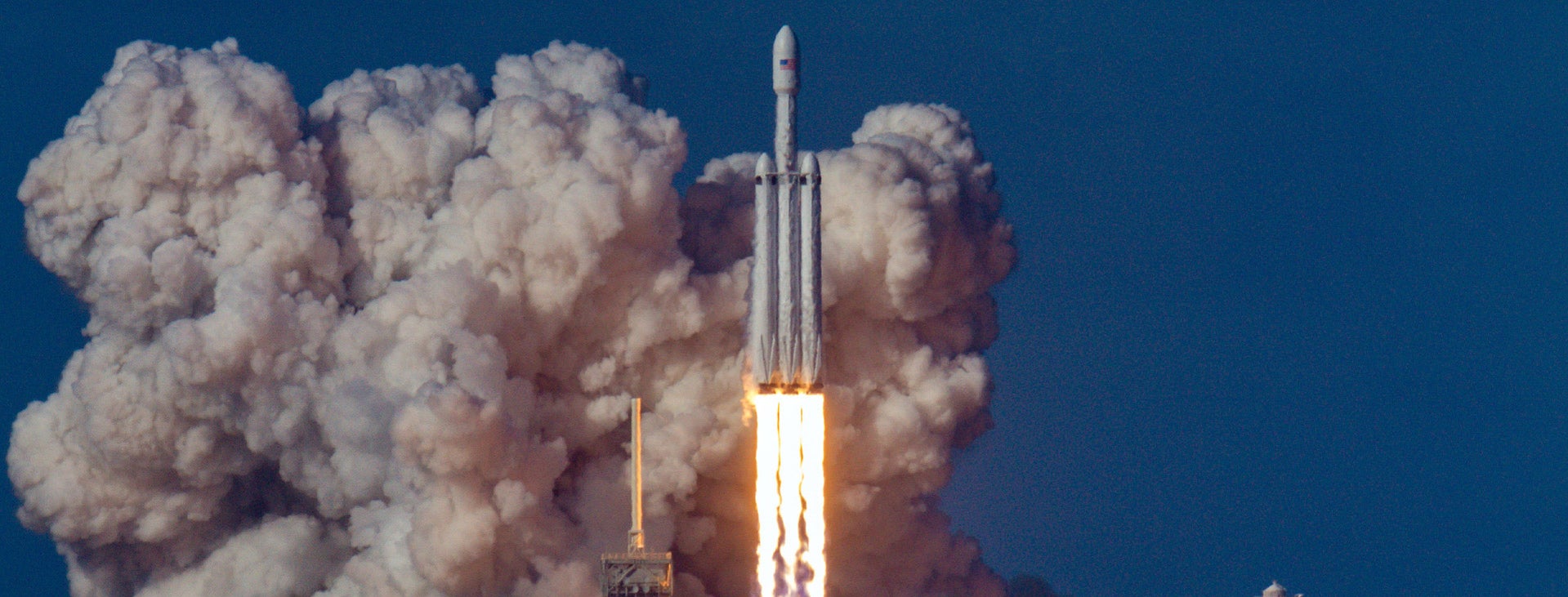
20 December 2024 • 4 minute read
Interstellar Insights - December 2024

In this issue
Click each topic to jump to that section.
- Supply chain challenges continue to disrupt military satellite programs
- Economy Space Summit panel discussion addresses the “space race,” national security risks
- US space economy is powering innovation and growth, says the Office of Space Commerce
- Space Command strategy aims to boost commercial role in operations
Supply chain challenges continue to disrupt military satellite programs
Lieutenant General Philip Garrant, who leads the US Space Force’s Space Systems Command, has reported that military satellite programs are facing disruptions due to supply chain challenges. While these issues were initially attributed to COVID-19-related disruptions, Lieutenant General Garrant has indicated the problems are systemic.
To navigate these issues, Derek Tournear, Director of the Space Development Agency (SDA), stated that his agency works directly with lower-tier suppliers and creates incentive-based contracts to boost production capacity.
Tournear noted that, although prime contractors typically maintain relationships with their major suppliers, they often overlook "lower-tier" subcontractors, despite their significant role in production. This oversight, he said, has resulted in military program delays. Additionally, the Pentagon has grown increasingly concerned about foreign dependencies within critical supply chains, viewing this as a strategic vulnerability for the US.
As the Pentagon and other government agencies work to establish a domestically self-reliant supply chain, commercial space companies are encouraged to carefully evaluate their manufacturing processes. Prudent companies will identify and address any vulnerabilities before pursuing government contracts.

Economy Space Summit panel discussion addresses the “space race,” national security risks
In the last quarter century, the number of countries with space agencies has nearly doubled. With the increased popularity of the “space race” comes increased national security risks. Space assets support essential services like communications, navigation, Earth observation, and weather forecasting. How can countries protect their interests and compete globally?
Earlier this month, Christian Ford, Chair of DLA Piper’s Space Exploration and Innovation practice, discussed these topics at the Economy Space Summit in Lisbon. Listen to this exclusive conversation between Christian and a panel of subject matter experts including Justin Ledbetter, Chief Operating Officer of Marlan Space; Ludovic Monnerat, Head of Space Domain at Swiss Armed Forces Joint Operations Command; Kyn Chassange, Senior Vice President of Marketing and Customer Experience at BlackSKy; and Alok Jha, Science and Technology Editor at The Economist.

US space economy is powering innovation and growth, says the Office of Space Commerce
The Office of Space Commerce (OSC) highlighted in an interview with Innovation News Network that the rapid growth of the US space economy is being driven by strategic investments and innovation.
The Bureau of Economic Analysis reported that, in 2022, the US space economy generated $232.1 billion in gross output, provided $54.5 billion in private-sector compensation, and supported 347,000 private-sector jobs. According to the Bureau, this substantial growth is powered by expanding commercial space activities, increased satellite launches, and continued government investment in space exploration and development.
The OSC recognized that these advances, combined with a sector that integrates diverse technologies including AI, manufacturing, deployment, and lunar exploration, have created new commercial opportunities both within the US and internationally.
Given this expansion, the OSC emphasized that regulatory and policy frameworks must evolve alongside technological progress. They stressed that international standards and regulations are essential for sustainable long-term success across all nations. To support this goal, the OSC has developed its Vision for Global Space Situational Awareness (SSA) Coordination. This framework outlines their approach to creating an open, transparent international system that facilitates SSA coordination and ensures reliable, efficient services for global spacecraft operators.

Space Command strategy aims to boost commercial role in operations
US Space Command is revising its strategy to better incorporate commercial systems into its operations, aligning with the broader national security space sector's increased collaboration with private companies.
General Stephen Whiting, leader of US Space Command (SPACECOM), emphasized that the new strategy highlights SPACECOM’s primary missions and the role of commercial space capabilities within those areas. This update follows the release of two significant commercial integration strategies earlier this year from the Office of the Secretary of Defense and the Space Force.
These strategies are part of a broader Defense Department initiative to enhance engagement with private-sector space firms. The Department’s goal is to encourage the acquisition of commercial systems, when feasible, and to develop plans for leveraging commercial technology in future conflicts.



